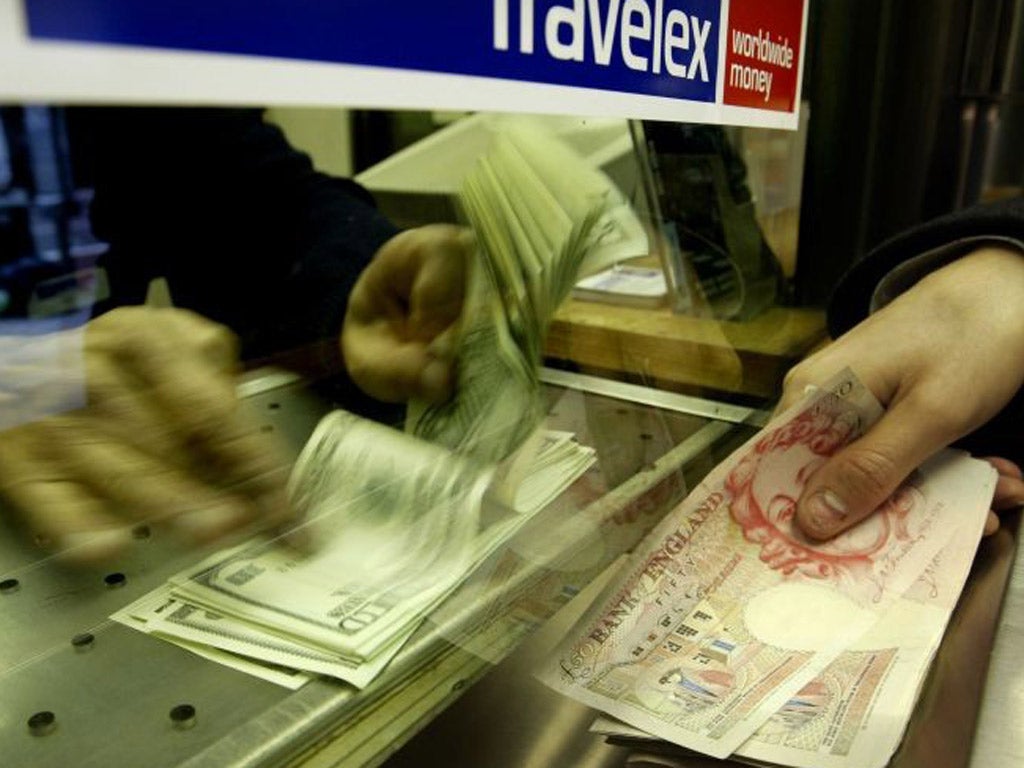Keep your travel costs to a minimum
From the point you leave your house to your return, there are many ways to cut back

Many rain-soaked Brits are in desperate need of some overseas sunshine. But many will also be torn between a holiday abroad and holding back – with household finances in desperate need of a jumpstart. If this is the case, it's time to trim all areas of holiday spending. Use our handy guide to spending more on fun and less on fees.
Credit and debit cards
Using the right plastic to pay for food and drink can mean a decent exchange rate. But choose your card carefully to avoid the sting of extra charges.
Some prepaid cards offer good value on spending abroad, but so can some credit cards, such as the Aqua Reward card and the Halifax Clarity card, neither of which adds loading fees on top of the exchange rate. Saga Platinum, the Post Office Platinum and the Nationwide Select cards all waive additional fees on purchases abroad.
Travellers from the UK are set to waste £160m this summer in unnecessary debit or credit card charges, according to prepaid card provider Caxton FX. So, avoid joining them by smarting up on fees.
Repay any spends in full when the bill comes in and don't withdraw cash with a credit card – it's likely to incur an ATM fee and you will be charged interest. If you do withdraw from a cash machine, Norwich and Peterborough Building Society waive overseas charges on its debit card.
For other cards it might be worth taking out a larger sum from the ATM, especially when the fee is fixed as opposed to a percentage fee based on the amount you take out – often around 2 per cent.
Another common rip-off is "dynamic currency conversion". You're given the option to pay in pounds but the restaurant or shop can set a terrible exchange rate and charges for the transaction will be around 4 per cent more. Always choose to pay in the local currency.
Travel money
"Traditionally, buying currency at the airport will cost between 3 and 6 per cent more than from a high street bureau de change or online provider," says Mark Bodega, director at currency specialists HiFX.
It's nearly always cheaper to buy online too. Compare rates on sites like compareholidaymoney.com to find out where you can make your pounds stretch. However, beware that not all travel money companies are authorised by the FSA and if the one you choose falls into administration, you could lose your cash.
Online companies such as Moneycorp and International Currency Exchange (ICE) offer good rates and free next day delivery on orders over £500 or £450 respectively. Choosing one of the online best buys over a high street bank could mean a difference of nearly £30.
Flights
Book well in advance and don't default to the budget airlines; check all offers because standard airlines can sometimes be the cheaper option. Once you include baggage, credit card and booking fees, the cheap option can look expensive. This is especially true for families who have to pay such fees per person. For example, for some Ryanair flights during peak season, checking in a bag could cost £40 per person. Do this at the airport and the fee rises to £130 per person, per flight.
Also check whether you have built up any reward points on credit cards or loyalty cards, which might be redeemable on flights or train journeys on lines such Eurostar.
Avios air miles can be used on British Airways flights, Nectar points on Eurostar journeys and YourPoints on NatWest's World MasterCard can be redeemed at easyJet and ebookers.
Travel insurance
Buy holiday insurance online but don't be lured by a false economy. The cheapest policy may have a large excess figure, or might only promise a small pay-out for cancellation.
A search on comparison website GoCompare.com shows a couple travelling to Europe can insure their trip for a little under £9 with Coverforyou, including cancellation and baggage worth £1,000 each and the excess in the event of a claim is £100. But pay £10.75 with the same insurer and you get £1,500 for cancellation, £1,250 for baggage and cover for airline failure is thrown in. So sometimes it's worth paying a little extra and it still won't bust your budget.
Hire car
Book early and when you find a good deal grab it as prices change quickly. Always book before you go and check deals on price comparison websites, where smaller, cheaper companies will show up too.
Mr Atkinson warns drivers to be wary about additional insurance, of up to £20 a day, that covers the excess, likely to be offered by the rental company when you arrive at the pick-up point.
He says: "Never take this from the car hire company. Protect yourself ahead of travelling by taking out car hire excess insurance – this can save up to 75 per cent on the charges made by the rental companies."
Airport parking and transfers
Typically, the earlier you book the better the price for airport parking – you could save as much as 60 per cent compared to standard prices.
Another idea is to rent a space from people living near an airport, using schemes like Parkatmyhouse.com or Parkonmydrive.com. Prices close to Birmingham Airport start at around £2 a day.
If you book via a travel agent ask about transfer costs but don't feel obliged – compare costs with online transfer companies too.
Subscribe to Independent Premium to bookmark this article
Want to bookmark your favourite articles and stories to read or reference later? Start your Independent Premium subscription today.

Join our commenting forum
Join thought-provoking conversations, follow other Independent readers and see their replies